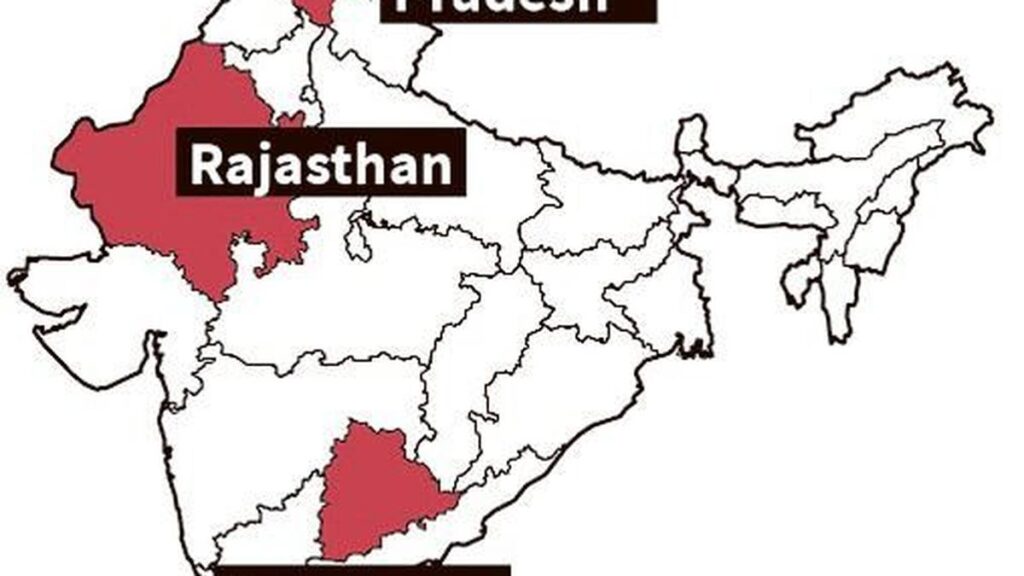Federalism and inter-State relations are making headlines these days, and some for good reasons.
Congress-ruled Telangana has in recent months entered into agreements with Bharatiya Janata Party-ruled Odisha and Rajasthan and Congress-ruled Himachal Pradesh to meet its power demand, which is growing faster than earlier projections. The State is particularly looking to expand the share of renewable energy in its total generation, prompting it to go all the way to Himachal for hydro power and to Rajasthan for solar power. Both Rajasthan and Himachal are looking for more opportunities to optimise their potential to produce more power than they require internally, from solar and hydro sources, respectively.
On the one hand, these agreements reflect inter-State cooperation. On the other, they reflect policy continuity at the national level, from previous regimes to the current Narendra Modi government, that enables this.
“Measures taken by Dr. Manmohan Singh made inter-regional and inter-State transmission of power easy and manageable through the national grid,” said Telangana Deputy Chief Minister and Energy Minister, Mallu Bhatti Vikramarka.
The Government of Telangana, through Singareni Company Collieries Limited (SCCL), has entered into a Memorandum of Understanding (MoU) with RVUNL, a Government of Rajasthan-owned company, to form a joint venture company with the purpose of developing 1,600 MW thermal energy in Telangana and 1,500 MW solar energy in Rajasthan, with an investment of ₹26,200 crore. SCCL will have a 74% equity share and RVUNL will have a 26% equity share.
The agreement establishes a framework for inter-State cooperation to meet the long-term power demands of both States. It enables SCCL to enhance base-load thermal power capacity while significantly reducing generation costs by integrating cost-effective solar energy during daylight hours. The initiative aims to provide affordable, reliable, and sustainable electricity to consumers in Telangana. Highlighting the significance of this partnership, Mr. Mallu described it as a transformative initiative that demonstrates collaborative governance and sustainable energy planning.
Heeralal Nagar, Minister of State (Independent Charge) for Energy, Rajasthan, said, “Rajasthan has enormous potential in solar energy. We are always ready to cooperate with all the States in the country and anyone who is investing in Rajasthan in the solar energy sector, keeping in mind Narendra Modiji’s vision of taking India ahead in all sectors, including energy. Rajasthan has a target of 125 GW of renewable energy capacity by 2030 and we are committed to reaching that target. We are signing pacts with PSUs and different States for reaching the target.”
The MoU between the Telangana government and the Himachal Pradesh government is a strategic collaboration, leveraging the hill State’s rich hydro power potential and Telangana’s commitment to sustainable energy solutions. The proposed projects — Seli (400MW) and Meyar (120MW) — will contribute to Telangana’s growing demand for clean energy and help in achieving long-term energy security. These projects have been assigned to Telangana Genco on nomination basis.
“These agreements are a win-win situation for both the States,” Himachal Pradesh Chief Minister Sukhvinder Singh Sukhu said. The power generated in Himachal Pradesh will be shared between the two States until the projects are transferred by Telangana to Himachal Pradesh after 40 years.
Mr. Mallu said Telangana’s power demand is growing faster than anticipated due to the expanding economy and increasing domestic demand. The Central Electricity Authority had projected the demand to grow by 8% between 2023-24 to 2024-25, from 15,623 MW to 16,877 MW. But it grew by 9.85%, to 17,162 MW.
“One thing is to meet the demand overall. But it is also important is to ensure that we increase the share of renewable energy in the mix,” he said. “Land prices in Telangana are too high for solar, and there are not enough hydro project sites.”
All these States are looking forward to deepening their cooperation in the energy sector to drive economic growth and also meet the increasing power needs of their citizens.
[email protected], [email protected]
Published – April 22, 2025 01:00 am IST
Source:https://www.thehindu.com/opinion/op-ed/power-sharing-across-states/article69475335.ece

